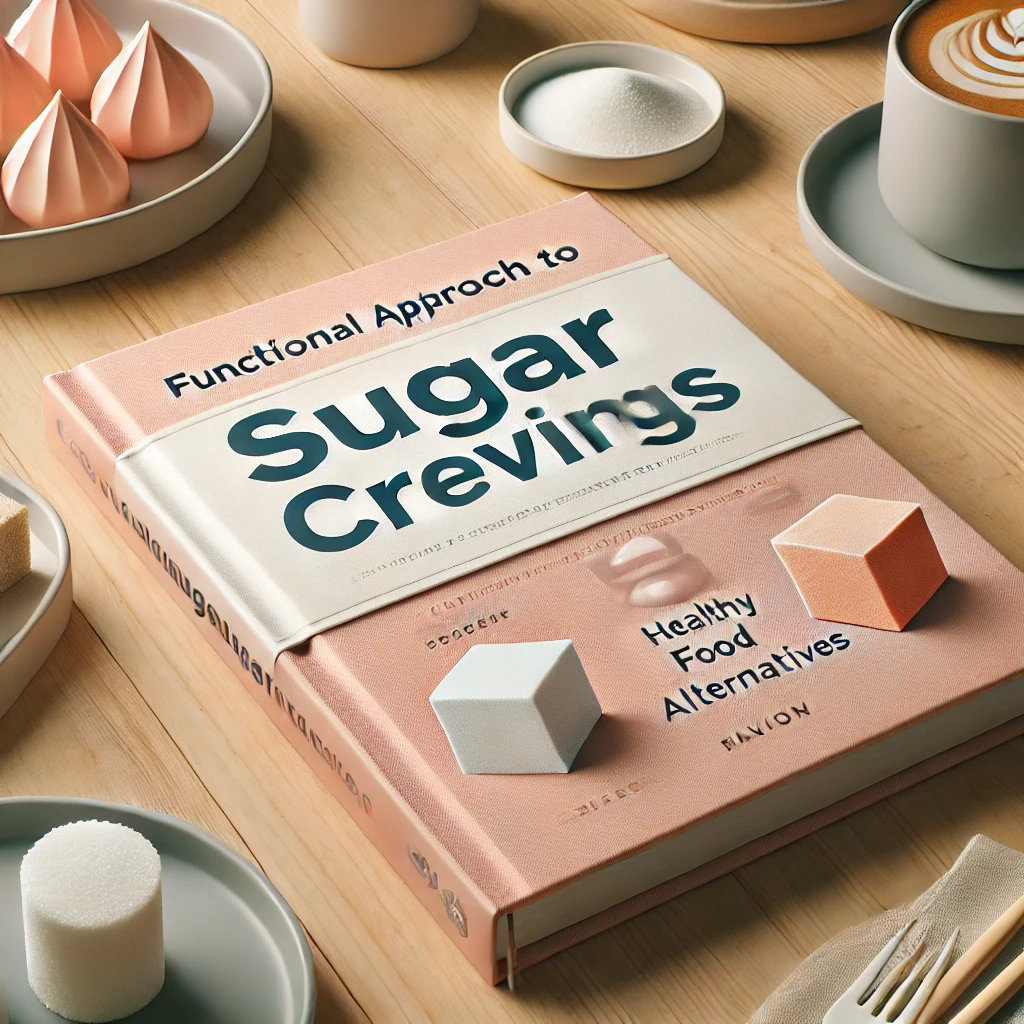Why Do I Crave Sugar? A Functional Medicine Perspective from St. Louis

Do you find yourself reaching for sweets even when you’re not hungry? Do your sugar cravings spike in the late afternoon or late at night? If so, you’re not alone. Sugar cravings are one of the most common complaints we hear from patients at Sheen Vein & Cosmetics in St. Louis—and they’re rarely just about “lack of willpower.”
In functional medicine, we ask: What is your body trying to tell you when it craves sugar? Because sugar cravings aren’t random—they’re often a sign of deeper imbalances in blood sugar regulation, hormones, gut health, or even stress response.
In this blog, we’ll walk through the top reasons you may be craving sugar, and how we help our St. Louis patients get to the root and break the cycle—without extreme dieting or crash cleanses.
1. Blood Sugar Imbalance
One of the most common—and most fixable—reasons for sugar cravings is blood sugar dysregulation. When you eat a high-carb or high-sugar meal, your blood glucose spikes, followed by a rapid crash. This crash leads to low energy, irritability, and—you guessed it—strong cravings for sugar or carbs to bring your blood sugar back up.
This roller coaster is especially common in people who:
- Skip meals or eat inconsistently
- Eat high-carb breakfasts (cereal, toast, fruit juice)
- Rely on caffeine to replace meals
- Have insulin resistance or early metabolic dysfunction
Explore more: How to Lose Weight Without Medications
What Helps:
- Eat a protein-rich breakfast with healthy fats and fiber
- Avoid processed carbs and added sugars
- Include non-starchy vegetables and protein at every meal
- Consider blood sugar-stabilizing nutrients like magnesium, chromium, and berberine
When blood sugar is balanced, cravings naturally decline—and energy improves.
2. Stress and Cortisol Dysregulation
If you find yourself reaching for sugar after a stressful day, you’re not alone. Chronic stress raises cortisol, your body’s main stress hormone. Elevated cortisol triggers sugar cravings as your brain looks for a quick energy source to “survive” the stress.
Unfortunately, sugar gives a short-term dopamine boost, which feels good in the moment—but it also reinforces the cycle and leaves you more depleted afterward.
Signs of cortisol-related cravings:
- Cravings late at night
- Waking up tired but wired
- Belly fat or weight gain despite healthy eating
- Emotional eating when overwhelmed
Learn more: How to Handle Stress Naturally
What Helps:
- Adaptogenic herbs like ashwagandha or rhodiola
- Deep breathing or vagus nerve stimulation
- Magnesium glycinate or L-theanine in the evening
- Gentle movement like walking or stretching
Balancing your stress response can significantly reduce cravings and help stabilize mood and sleep.
3. Gut Microbiome Imbalance (Dysbiosis)
Did you know your gut bacteria can influence what you crave?
When your gut is overrun with yeast (like candida) or bad bacteria, those microbes literally signal your brain to feed them sugar—because that’s what they thrive on. This leads to persistent cravings that don’t go away, even after eating.
Signs of dysbiosis may include:
- Bloating or gas
- Brain fog or fatigue
- Strong sugar cravings, especially after antibiotics
- Recurrent yeast infections or skin issues
Related: The Gut-Immune-Hormone Connection
What Helps:
- Cutting out added sugars and refined carbs
- Adding prebiotic fiber and fermented foods (if tolerated)
- Using targeted probiotics or herbal antimicrobials (guided by testing)
- Supporting gut lining repair with glutamine, zinc carnosine, or collagen
Healing your gut can dramatically shift your cravings—and even improve your mood and energy levels.
4. Hormonal Imbalances
In women, sugar cravings often worsen during:
- PMS or the luteal phase of the cycle
- Perimenopause and menopause
- Times of low progesterone or estrogen dominance
Fluctuating estrogen, progesterone, and cortisol levels can lead to low serotonin and low dopamine, which your brain tries to fix by asking for sugar. This is particularly common in the late afternoon or evening, when hormone levels drop.
Explore more: Low Dose Testosterone for Menopausal Women
What Helps:
- Supporting hormone balance with nutrition and targeted herbs
- Evaluating cortisol, estrogen, progesterone, and DHEA with testing
- Using mood-stabilizing nutrients like B6, magnesium, and vitamin D
When hormones are balanced, cravings feel more manageable—and energy stabilizes across the day.
Get to the Root of Your Sugar Cravings in St. Louis
If you’ve tried to “just eat less sugar” and failed, it’s not your fault—it’s your biology. At Sheen Vein & Cosmetics, we take a root-cause approach to sugar cravings through advanced lab testing, nutritional guidance, and functional hormone and gut support.
📞 Call 314-842-1441 to schedule your consultation
💻 Visit www.sheenveinandcosmetics.com to explore our functional medicine services
You don’t need more willpower. You need a personalized plan that balances your body and brings your cravings under control—naturally.